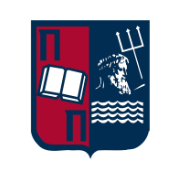Instructional Methods |
|
|---|---|
| Professors | Foteini Paraskeva |
| Course category | OPT/ICT |
| Course ID | DS-706-ICT |
| Credits | 5 |
| Lecture hours | 3 hours |
| Lab hours | 2 hours |
| Digital resources | View on Aristarchus (Open e-Class) |
Learning Outcomes
This course is designed to promote a fundamental understanding of the theoretical and applied knowledge related to instructional theories and models (principles, methods, strategies) for the design, development, implementation and evaluation of Technology Enhanced Learning Environments (TELE). The purpose of this course is to introduce students to the orchestrated elements of instruction.
At completion of the course, the students will be able:
- to understand the fundamental principles of instructional theories and models
- to analyze, design, develop and evaluate different types of instructional methods & strategies for an effective teaching.
- to demonstrate a knowledge of the ‘what’, ‘how’, and ‘when’, in the instructional design process in different disciplines.
- to integrate ICT educational technologies into activities for K-16 and business settings.
- to create an educational plan/scenarios for reflective thinking into educational practice.
- to create the appropriate orchestrated instructional methods and strategies for an effective teaching.
- to articulate a personal set of values, motivation, attitudes and a vision for the future classroom.
Course Contents
- Introduction to the concepts: Education – Learning – Instruction – Training.
- Principles of the learning processing in different Teaching Models (behavioral, cognitive and social constructivist principles & theories in specific instructional methods).
- Personal and psychological factors in learning and instruction (individual differences, self-efficacy beliefs, motivations, needs, attitudes, learning styles, cognitive learning styles on TELE).
- Models of teaching and instructional design (Gagne’s Nine Events of Instruction, Bruner, Pr/jBL, Kirkpatrick model).
- Taxonomies and learning objectives (Bloom’s Taxonomy).
- Formative, summative and authentic assessment.
- ICT in educational settings (synchronous and asynchronous learning, web 2.0 environments, authoring tools, AHLE, LMS, CMS, smart education, e-portfolios, educational games, gamification).
- ICT applications (lesson plans, educational scenarios, macro/micro scenarios).
- School and professional environment (interpersonal relationships, communication, ethics).
Recommended Readings
Joyce, B. R.; Weil, M.; Calhoun, E. (2015). Models of Teaching, 9th Edition, Pearson
Dell’Olio, J., & Donk, T. (2007). Models of teaching: Connecting student learning with standards. Thousand Oaks, CA: Sage Publications.
Joyce, B. R.; Weil, M.; Calhoun, E. (2015). Models of Teaching, 9th Edition, Pearson
Elliott S, Kratochwill T, Littlefield-Cook J, Travers J. (2008).Educational Psychology: Effective Teaching, Effective Learning,Brown & Benchmark Pub.
Reggie, K., Fox, R., Chan F. T. , Tsang P. (2008). Enhancing Learning Through Technology: Research on Emerging Technologies and Pedagogies. World Scientific
Roblyer M.D. (2009). Integrating Educational Technology into Teaching, 5thed., Allyn & Bacon.
Sawyer, R. K. (2006). The Cambridge Handbook of the Learning Sciences, Cambridge University Press.
Slavin R., E. (2008). Educational Psychology: Theory and Practice, 9thed.,Allyn & Bacon.
Snowman, J. Biehler, R. (2008). Psychology Applied to Teaching, 12th Edition, Hougton & Mifflin.
Woolfolk, A. (2010). Educational Psychology,11thed., Allyn & Bacon.

